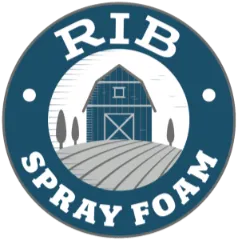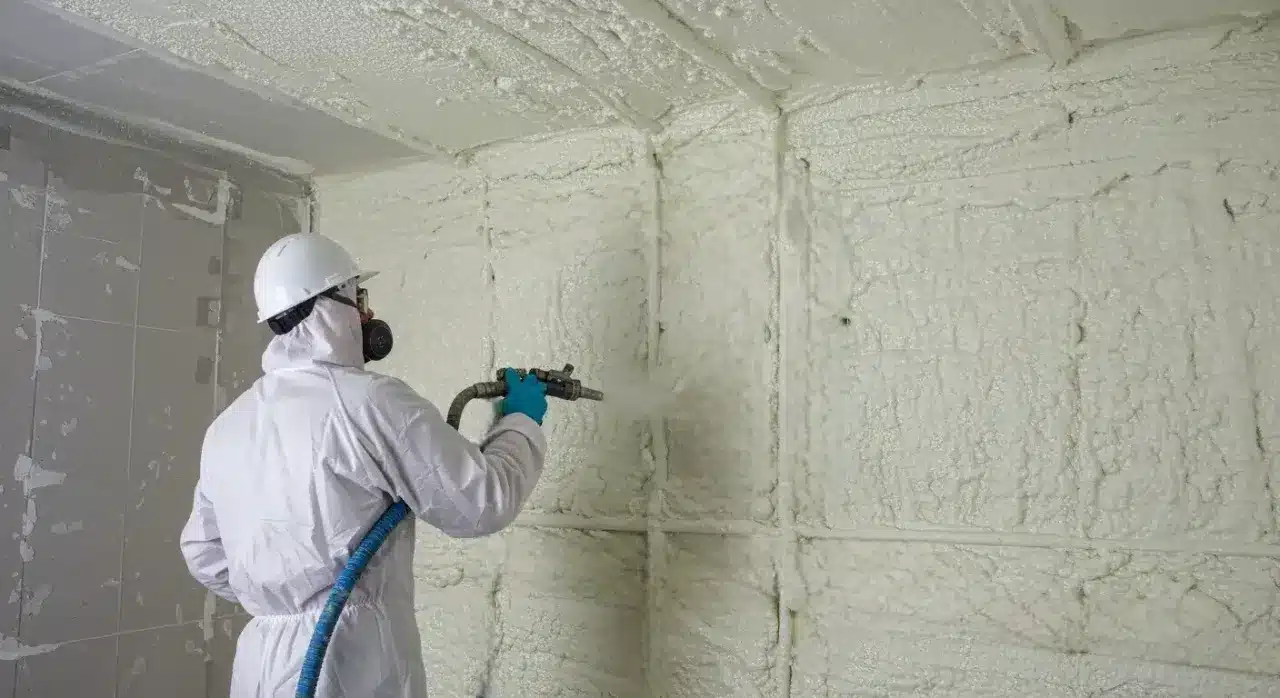If you live in Denver County, you know how unpredictable the weather can be. From bitter cold winters to scorching summer afternoons, it’s tough to keep your home consistently comfortable without your energy bills skyrocketing. That’s where spray foam insulation comes in. It’s not just another upgrade—it’s a smart, long-term investment that helps make your home more efficient, more durable, and easier to heat and cool.
What Makes Spray Foam Different?
Spray foam insulation is a unique product that starts as a liquid and expands into a solid foam. As it fills gaps and crevices, it forms an airtight seal—something traditional insulation like fiberglass just can’t match.
There are two main types you’ll come across:
- Open-cell spray foam: This type is softer and more flexible. It’s great for reducing noise and works well inside walls and ceilings.
- Closed-cell spray foam: This version is denser and more rigid, making it ideal for exterior walls, basements, and attics. It also adds a bit of structural strength to your home.
Real Benefits You’ll Notice at Home
Save on Energy Year-Round
Spray foam does a great job of keeping your warm air in during winter and the hot air out during summer. Because it seals up those tiny air leaks, your HVAC system won’t have to work as hard. That means lower monthly energy bills.
Keeps Moisture and Mold at Bay
In places like basements or crawl spaces, moisture can be a real problem. Spray foam doesn’t absorb water, so it helps prevent mold from taking hold.
Adds Strength to Your Structure
Closed-cell foam can actually make your walls and roof a bit stronger. That’s a nice bonus if you’re worried about high winds or long-term durability.
It Lasts for Decades
Once installed, spray foam doesn’t sag or settle over time. It keeps performing year after year, so you don’t need to worry about replacing it anytime soon.
Makes Your Home Quieter
Tired of hearing traffic or noisy neighbors? Open-cell foam helps reduce sound, giving you a quieter, more peaceful home.
Where Should You Use Spray Foam in Your Home?
Some parts of your home benefit more than others. Here’s where spray foam really shines:
- Attics: Heat rises, and a poorly insulated attic can be a major energy drain. Spray foam keeps that heat inside during winter—and outside during summer.
- Exterior walls: A well-insulated wall system helps your entire home stay more consistent in temperature.
- Basements: These are often damp, drafty areas. Spray foam helps seal out moisture and keep things comfortable.
- Crawl spaces: Don’t overlook these. Spray foam can keep moisture out and improve air quality throughout your home.
- Garages: Especially if it’s attached to your home, insulating your garage can help keep adjoining rooms more comfortable.
Why Spray Foam Works So Well in Denver’s Climate
Denver sees it all—snowstorms, dry spells, heat waves. That kind of weather calls for insulation that can stand up to it.
- Handles big temperature swings: Closed-cell foam is ideal for those freezing winters and hot summers.
- Blocks moisture: Especially helpful in areas that experience snowmelt or heavy rain.
- Complies with building codes: When installed by professionals, spray foam meets or even exceeds energy efficiency requirements.
Why Homeowners Trust Rib Spray Foam Company
Installing spray foam correctly is key to getting the most out of it. At Rib Spray Foam, we know what works—and we know Denver homes. Whether you’re insulating a new build or upgrading an older one, our team will make sure the job is done right from start to finish.
Call us at (970) 518-2883 or shoot us an email at [email protected] to get started.
How Spray Foam Compares to Traditional Options
| Feature | Spray Foam | Fiberglass | Cellulose |
|---|---|---|---|
| Air sealing | Excellent | Moderate | Poor |
| Water resistance | High | Low | Low |
| Lifespan | 20+ years | 10–15 years | 10–20 years |
| Energy efficiency | High | Moderate | Moderate |
| Mold resistance | Yes | No | No |
Spray foam performs better in almost every category—especially when it comes to energy savings, moisture control, and longevity.
What About the Cost?
Yes, spray foam costs more upfront than other insulation types. But when you factor in the long-term energy savings—and the potential for local rebates or tax credits—it often pays for itself. Plus, you get the added benefit of peace of mind knowing your home is sealed and protected for decades.
Final Thoughts
If comfort, energy savings, and long-term performance matter to you, then yes—spray foam is a great choice. Whether you’re updating your current home or insulating a brand-new one, spray foam gives you a solid return on your investment.
Want to learn more or schedule an estimate?
Call Rib Spray Foam at (970) 518-2883 or email us at [email protected].
FAQs
How much is spray foam insulation in Denver County?
It typically ranges between $1.50 and $3.00 per square foot, depending on how much area you’re covering and the type of foam you choose.
Is spray foam insulation safe for my family?
Yes. After it cures, spray foam is completely safe and doesn’t release any harmful chemicals. Proper installation ensures a safe environment.
Will spray foam help lower my heating and cooling costs?
Definitely. It seals air leaks better than any other insulation type, which leads to lower utility bills almost right away.
Can I use spray foam in my older home?
Yes, absolutely. Spray foam is great for both new construction and older homes. It works especially well for sealing up those drafty spots.
Does it help with noise reduction too?
Yes. Open-cell spray foam absorbs sound, making it a great option if you’re trying to reduce noise from outside or between rooms.



